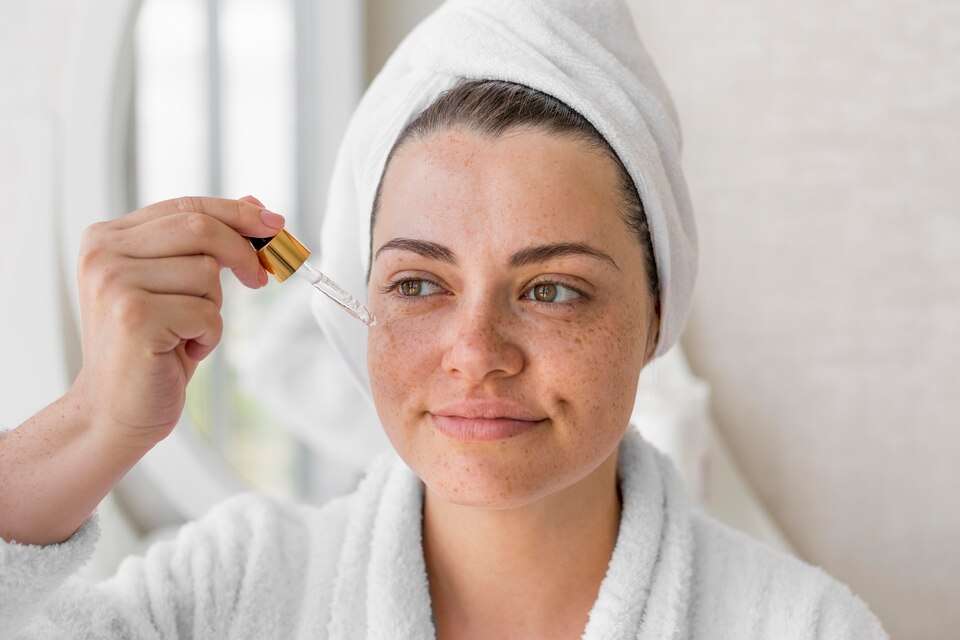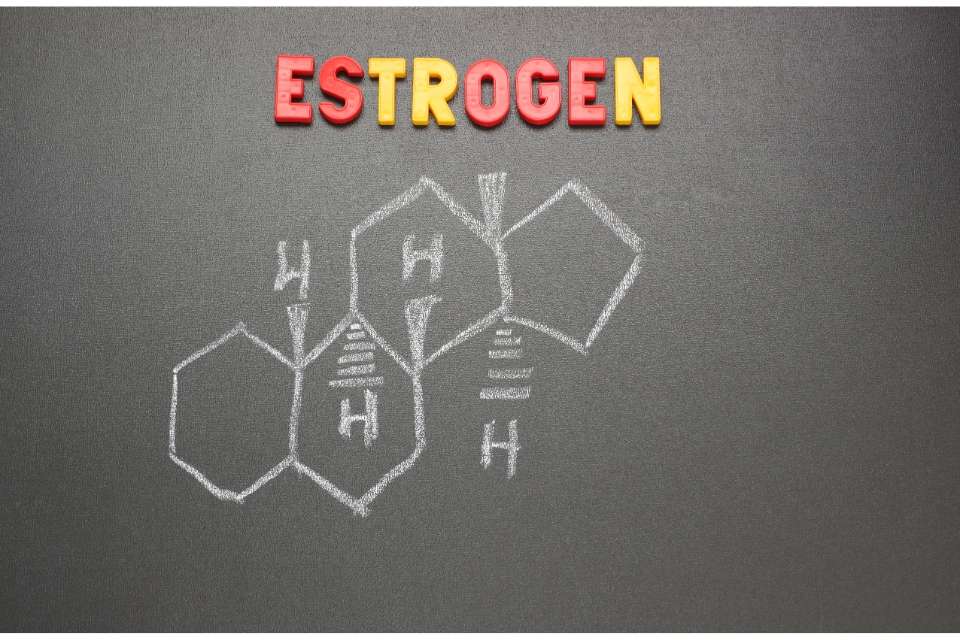It’s a big part of being a teenager, but for a few of us, it doesn’t go away when we do. If you’ve ever had a pimple right before your period, hormonal acne might have caused it. Let’s talk about hormonal acne, why it happens, and the best way to treat it.

What is hormonal acne? Why does it happen?
Skin oils, dead skin cells, and bacteria all cause acne spots. Sebum is a sticky liquid that your skin’s sebaceous glands make. When it combines with dead skin cells, it accidentally clogs your pores. From there, the bacteria can cause more swelling.
Stress, hair or skincare items that can clog pores, your family background, and even what you eat make it more likely that you’ll get a hormonal acne as an adult. Your hormones can too. As the name says, hormonal acne is attributed to hormone level changes.
>>Get Your Secret Guide Here<<
Hormones called androgens (like testosterone) and estrogen are two of the most important hormones in hormonal acne. The amount of androgens, as well as estrogen, in the body, contains a direct effect on how your oil glands work.
Androgens make them work harder and make more oily sebum, while estrogen stops them from working and stops androgens from being made. So, if you have more androgens in your body, you might have oilier skin and more pimples.

If you have more estrogen, you might have less oil on your skin and fewer pimples. The combination of these hormones isn’t the only biological factor that can cause acne, but if either change, it could be the cause. Women often get pimples before or during their period because of hormones.
Acne caused by hormones can also happen when a woman is pregnant or at the start of menopause or perimenopause. Another possible cause is stopping or starting birth control with hormones. Often, hormonal acne appears on your forehead, face, neck, back, chest, or shoulders. These are the places where your skin makes the most sebum.
How do I tell if hormones cause my acne?
Acne can be brought about by anything from a change in your makeup routine to a change in your surroundings. Here are various methods to find out if changes in your hormones cause your acne:
>>Get Your Secret Guide Here<<
Watch the timing.
Do you get the same pimples at certain times of your period? Try keeping track of them on a calendar, such as you would your period, to find out if hormone changes cause them.
Pay attention to the spots you get.
Do you just now have acne? Or are you getting blemishes in the same place and of the same kind that you’ve never seen before? If so, that could mean that your acne is caused by a change that happened recently, which could have changed your hormone levels.
See your doctor.
During a checkup, your doctor may assist you in figuring out if you have hormonal acne caused by hormones. They will look at how bad your acne is and where it appears. They may also ask you how you care for your face or other possible causes.
Can I avoid acne caused by hormones?
You can’t avoid getting hormonal acne because it happens when your hormone levels change. But you can perform some things to get your skin ready and stop flare-ups. We’ll talk about that some more next.
>>Get Your Secret Guide Here<<
How to treat acne caused by hormones
Different things work for various people, so what works over one person could not be effective for you. Here are six things to save in mind if you have hormonal acne that is made by hormones.
Visit a specialist.
If you are worried, you might desire to talk to a dermatologist. Dermatologists may provide prescription-strength medicines like retinoids or antibiotics to help with hormonal acne.
Wash your face softly and regularly.

Even though your skin is the biggest organ in your body, that doesn’t mean you should treat it roughly. When you wash your face, use clean hands, light soap, and warm but not too warm water. Don’t use rough washcloths or scrub too hard. These can reason skin irritation and could even make acne worse. Wash your face once in the morning, at night, or after you’ve worked up a sweat.
>>Get Your Secret Guide Here<<
Resist the desire to pick spots.
When you have pimples, you might want to poke and prod them to eliminate them. But when you scratch at acne, you stop your skin’s normal way of healing, making it take longer to go away. Picking at or popping pimples can hurt your skin and even leave scars.
Read Also: What You Require To Know About Acne Skin Facts 2023
To keep oil production under control, don’t sunbathe or tan.

Everyone knows that the sun and tanning beds can hurt your skin. UV light can make your skin age faster than it should and weaken your defense system. It can also briefly make your face more sebum, making acne flare-ups more likely. So escape the sun and tanning beds as much as possible if you can’t. Protect yourself by using an oil-free lotion with sunscreen.
Use cosmetics and skincare items that won’t clog your pores.
Not all makeup, and skin care items, are the same. Some are better at helping with acne than others. Products that aren’t comedogenic are less inclined to clog your pores, giving your skin a better chance of staying clear.
Look carefully at the labels of your skincare and makeup items and look for words like non-comedogenic, oil-free, and non-acnegenic. These words and phrases show that the product is more unlikely to cause or worsen acne if you’re nervous about changing your practice.
Check out what’s offered.
If you’ve had acne, you may already have items you use to treat it. But if you’ve never had acne before or if your old faves aren’t working for your hormonal acne, there are many things you can try in the beauty area and beyond! Acne-fighting ingredients can be applied to the skin, like tea tree oil, or taken by mouth, like zinc. Talking to your doctor regarding trying new methods is a good idea.
>>Get Your Secret Guide Here<<
They may assist you in figuring out which choices are best for you and your face. Watch out for typical side effects like dryness and itching, as well as more specific ones that could be caused by the treatment you choose or other health problems you already have. Acne caused by hormones is completely normal. You can take more good care of yourself as well as your skin if you listen to your health and see a physician.